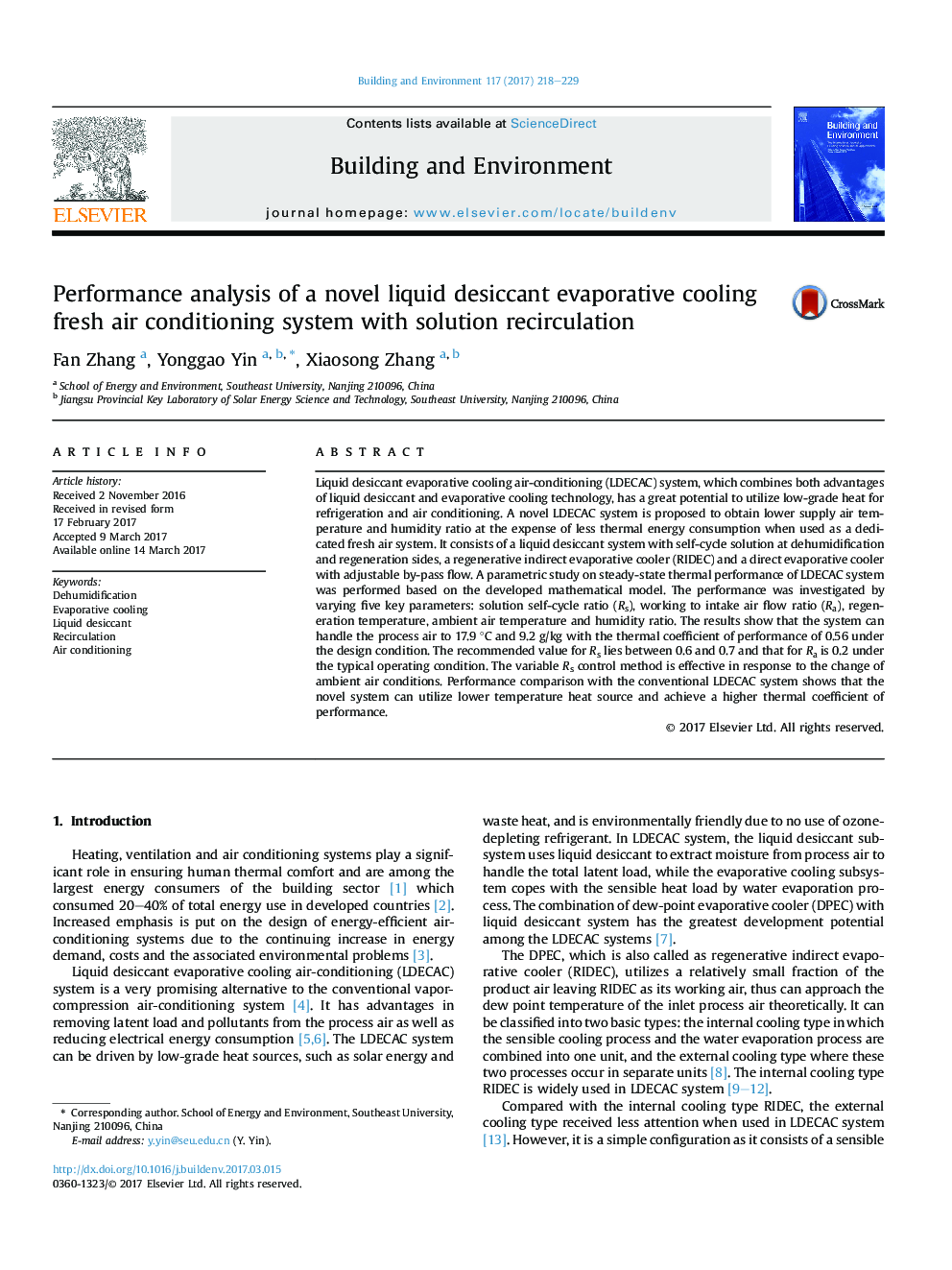| Article ID | Journal | Published Year | Pages | File Type |
|---|---|---|---|---|
| 4917315 | Building and Environment | 2017 | 12 Pages |
Abstract
Liquid desiccant evaporative cooling air-conditioning (LDECAC) system, which combines both advantages of liquid desiccant and evaporative cooling technology, has a great potential to utilize low-grade heat for refrigeration and air conditioning. A novel LDECAC system is proposed to obtain lower supply air temperature and humidity ratio at the expense of less thermal energy consumption when used as a dedicated fresh air system. It consists of a liquid desiccant system with self-cycle solution at dehumidification and regeneration sides, a regenerative indirect evaporative cooler (RIDEC) and a direct evaporative cooler with adjustable by-pass flow. A parametric study on steady-state thermal performance of LDECAC system was performed based on the developed mathematical model. The performance was investigated by varying five key parameters: solution self-cycle ratio (Rs), working to intake air flow ratio (Ra), regeneration temperature, ambient air temperature and humidity ratio. The results show that the system can handle the process air to 17.9 °C and 9.2 g/kg with the thermal coefficient of performance of 0.56 under the design condition. The recommended value for Rs lies between 0.6 and 0.7 and that for Ra is 0.2 under the typical operating condition. The variable Rs control method is effective in response to the change of ambient air conditions. Performance comparison with the conventional LDECAC system shows that the novel system can utilize lower temperature heat source and achieve a higher thermal coefficient of performance.
Related Topics
Physical Sciences and Engineering
Energy
Renewable Energy, Sustainability and the Environment
Authors
Fan Zhang, Yonggao Yin, Xiaosong Zhang,
